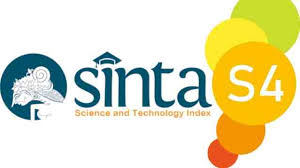MENU UTAMA
Policies on Conflict of Interest, Human and Animal rights, and Informed Consent
Jurnal Ilmiah Multidisiplin Indonesia (JIM-ID) Requires writers to consider their writing to be against all competing interests. Both submitted manuscripts shall have a section at the end of the paper with 'competitive interests' detailing both competing interests (financial and non-financial). Where writers do not have competing interests, the declaration may read, "The writers have stated that there are no competing interests." Editors can require more clarification about competing interests. Editors and editors are also expected to report their competing interests and, if there is a competitive interest, may be disqualified from peer review.
Competing interests can include financial or non-financial interests. A competitive claim arises where data analysis or information disclosure by authors may be affected by their personal or financial connection with other individuals or organizations. Writers should report any conflicting economic interests but also any conflicting non-financial interests, which would cause them shame if they were to become public after the article was written.
Writers should report any conflicting financial interests but also any conflicting non-financial interests, which would cause them shame if they were to become public after the article was written. The guidelines often extend to any business or person employed on publications funded by the industry, such as freelance journalists, contract consulting agencies, and marketing firms.
Human and Animal Rights
The analysis needs to have been done under a proper ethical context. If there is a concern that work has not been carried out under a proper moral context, the editors may deny the manuscript and contact the ethics committee of the author(s). In some instances, where the Publisher has legitimate reservations regarding the ethics of a review, the paper might be refused for ethical purposes, even though an ethics committee has received permission.
A study concerning human subjects, human content, or social data must have been carried out in compliance with the Helsinki Resolution and must have been accepted by a related ethics committee.
The submitted study has to be supported by the ethics/bioethics committee approval.
Authors reporting the use of a new technique or method in a clinical environment, e.g., as a scientific development or case study, may include a specific explanation in the paper as to whether the new procedure or method has been considered more necessary than usual to satisfy the health needs of the patient. Such a rationale is not needed if the organization of authors already accepts the current technique for clinical use. Authors will be expected to have received approval from the Ethics Committee and informed patient consent for any future use of a new process or method were before treatment, a clear clinical benefit based on clinical need was not evident.
Informed Consent
Including details, images related to individual participants are not allowed.
Experimental research on vertebrates or other controlled invertebrates must conform with governmental, national, or international standards, and an appropriate ethics committee should have accepted where possible.
A statement detailing compliance with relevant guidelines (e.g., the revised Animals (Scientific Procedures) Act 1986 in the UK and Directive 2010/63/EU in Europe) and ethical approval (including the name of the ethics committee and the reference number where appropriate) must be included in the manuscript. If an exemption from requiring approval of ethics has been given for a report, this should also be stated in the document (including the name of the ethics committee, which is given the exemption and the reasons for the exemption). The Editor will take the animal welfare issues into account and reserve the right to reject a manuscript, mainly if the study includes procedures that are conflicting with generally agreed animal science norms. Editors should, in some instances, notify the ethics committee for additional details.
Farm trials and other non-experimental animal testing must conform with the local, state, or international standards, and an appropriate ethics committee should have accepted where possible. The report may contain a paragraph describing compliance with applicable rules and required permits or licenses. We recommend that authors comply with the Convention on the Trade in Endangered Species of Wild Fauna and Flora and the IUCN Policy Statement on Research Involving Species at Risk of Extinction.
For studies reporting livestock trials with production, health, and food-safety outcomes, authors are encouraged to adhere to the State Consumer Protection Service of Indonesia or appropriate National/International Establishments.













